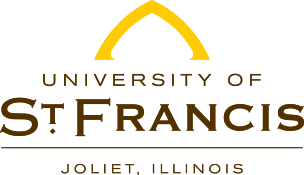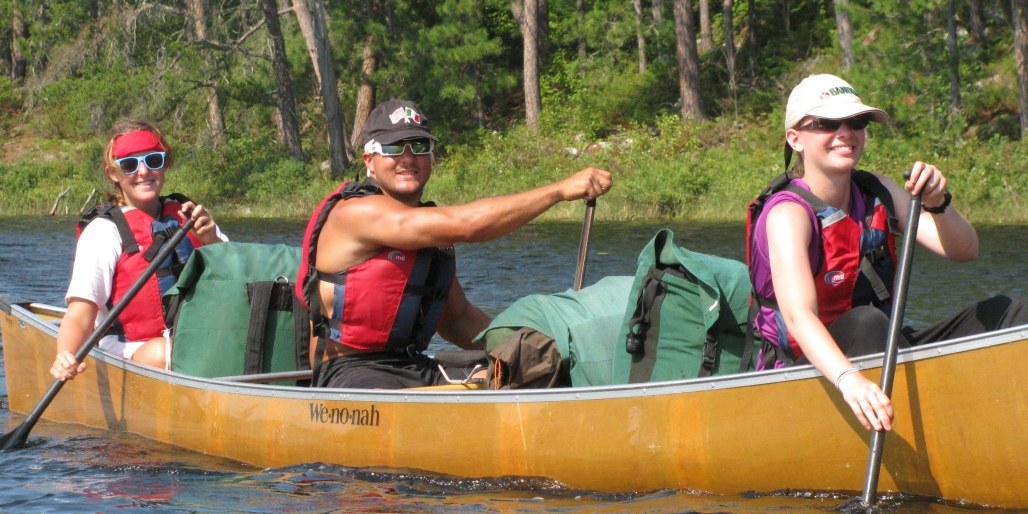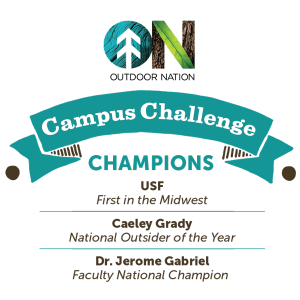Imagine going every day to a job you love. Do you have a passion for sports? Does working with kids and families interest you? Do you love being outdoors? If so, a career in the recreation and sport management field may be for you.
Recreation and leisure are essential for strong communities and satisfying lifestyles. USF’s Recreation and Sport Management program prepares students for rewarding careers in a field that provides meaningful leisure in a variety of settings. USF’s dedicated faculty prepares students for professional leadership roles through innovative instruction, experiential learning and a personalized advising process.
As the only nationally accredited program of its kind in the Chicago suburbs, USF’s Recreation & Sport Management program produces students who are marketable across a range of job settings. Nationally, jobs in the recreation field are expected to grow faster than the average for all
occupations (United States Department of Labor, Bureau of Labor Statistics). Entry level salaries average at $31,650, while median salaries can range anywhere from $62,740 to $83,790, depending on titles and duties.
Concentrations
Community Recreation and Park Resources Concentration (30 hours)
Concentration Core (21 hours)
LEAD 101 Introduction to Leadership 3
RSTM 103 Wellness and Life Satisfaction 3
RSTM 250 Recreation and Youth Development 3
RSTM 300 Team Facilitation and Leadership 3
RSTM 316 Design, Operations & Mgmt of Community Rec & Park Resources 3
RSTM 325 Administration and Resource Management 3
RSTM 350 Fiscal and Operational Management in Rec/Leisure Services 3
Concentration Electives (9 hours from one of the following):
Environmental Electives
BIOL 124/125 Principles of Biology I 4
BIOL 126/127 Principles of Biology II 4
BIOL 361 Ecology 4
BIOL 494 Special Problems 1-4
ENVS 105 Environment and Humanity 4
ENVS 300 Environmental Issues 4
PHIL 323 Ethics & Environmental Issues 3
RSTM 200 Outdoor Leadership* 3
RSTM 323 Outdoor Recreation and the Environment* 3
RSTM 194 Topics in Sport, Recreation & Physical Education 1-3
RSTM 294 Topics in Recreation, Sport & Leadership 1-3
RSTM 494 Topics in Recreation & Sport 1-3
*May be taken as a concentration elective if not applied to the major core.
Governance Electives
LEAD 213 Leadership in a Global Community 3
POLI 210 Introduction to Law 3
POLI 220 Public Administration 3
POLI 221 State and Local Politics 3
POLI 320 Policy Analysis, Implementation, and Evaluation 3
POLI 333 Scope and Methods of Political Science 3
RSTM 194 Topics in Sport, Recreation & Physical Education 1-3
RSTM 294 Topics in Recreation, Sport & Leadership 1-3
RSTM 494 Topics in Recreation & Sport 1-3
Economic Electives
BSAD 277 Business Research 3
ECON 302 Consumption Economics 3
ECON 312 International Economics 3
FINC 496 Independent Study 1-3
MGMT 150 Management and Organizational Behavior 3
MGMT 303 Organizational Development 3
MGMT 356 Quantitative Methods 3
MGMT 366 Business, Society and Environment 3
MGMT 370 Entrepreneurship 3
RSTM 319 Sport Organizations & Business Practices 3
RSTM 194 Topics in Sport, Recreation & Physical Education 1-3
RSTM 294 Topics in Recreation, Sport & Leadership 1-3
RSTM 494 Topics in Recreation & Sport 1-3
Social Electives
LEAD 213 Leadership in a Global Community 3
LEAD 225 Woman & Leadership 3
LEAD 320 Field Experience 3
PHIL 330 Business Ethics 3
PHIL 494 Topics in Philosophy 1-4
PSYC 311 Social Psychology 3
PSYC 350 Personality 3
RSTM 103 Wellness and Lifestyle Behavior 3
RSTM 194 Topics in Sport, Recreation & Physical Education 1-3
RSTM 275 Sport, Culture & Society 3
RSTM 294 Topics in Recreation, Sport & Leadership 1-3
RSTM 494 Topics in Recreation & Sport 1-3
SOCI 250 Introduction to Anthropology 3
SWRK 241 Human Behavior and the Social Environment I 3
SWRK 242 Human Behavior and the Social Environment II 3
THEO 230 Christian Morality 3
Outdoor Recreation Concentration (30 hours)
LEAD 101 Introduction to Leadership 3
PSYC 111 General Psychology 3
RSTM 200 Outdoor Leadership 3
RSTM 235 Adventure Sports I 3
RSTM 235 Adventure Sports II 3
RSTM 250 Recreation and Youth Development 3
RSTM 300 Team Facilitation and Leadership 3
RSTM 325 Administration and Resource Management 3
RSTM 350 Fiscal and Operational Management in Rec/Leisure Services 3
RSTM 410 Issues in Outdoor Recreation 3
Recreation Therapy Concentration (38 hours)
Note: Concentration is 38 hours total, less 7 general education hours as noted with asterisk (*).
BIOL 113 Anatomy and Physiology (fulfills Gen Ed. Science) 4*
PSYC 111 General Psychology (fulfills Gen. Ed. Social Awareness) 3*
PSYC 240 Lifespan Development 3
OR
SWRK 242 Human Behavior and the Social Environment 3
PSYC 250 Abnormal Psychology 3
RADT 102 Medical Terminology 1
RSTM 210 Foundations of Recreation Therapy 3
RSTM 300 Team Facilitation and Leadership Principles 3
RSTM 331 Program Planning and Evaluation in Recreation Therapy 3
RSTM 333 Principles and Practices of Interventions in Recreation Therapy 3
RSTM 335 Recreation Therapy Assessment and Documentation 3
RSTM 337 Diagnostic Groups in Recreation Therapy 3
RSTM 392 Clinical Field Experience Field Experience in Recreation Therapy 2
RSTM 405 Issues and Trends in Recreation Therapy 3
Sport Operations Management Concentration (30 hours)
Concentration Core (18 hours)
RSTM 275 Sport, Culture and Society 3
RSTM 300 Team Facilitation and Leadership Principles 3
RSTM 316 Design, Operations & Mgmt of Community Rec & Park Resources 3
RSTM 319 Sport Organizations and Business Practices 3
RSTM 325 Administration and Resource Management 3
RSTM 350 Fiscal and Operational Management in Rec/Leisure Services 3
Concentration Electives (12 hours from one of the following):
Athletic Administration Electives
CMMA 241 Sports Information 3
MGMT 150 Management and Organizational Behavior 3
MGMT 350 Corporate Communication 3
MKTG 275 Advertising and Promotion 3
PHIL 330 Business Ethics 3
PSYC 212 Introduction to Sport Psychology 3
RSTM 194 Topics in Sport, Recreation & Physical Education 1-3
RSTM 250 Recreation and Youth Development 3
RSTM 290 Care and Management of Athletic Injuries 3
RSTM 294 Topics in Recreation, Sport & Leadership 1-3
RSTM 494 Topics in Recreation & Sport 1-3
Commercial Recreation Operations Electives
LEAD 213 Leadership in a Global Community 3
MGMT 350 Corporate Communication 3
MGMT 370 Entrepreneurship 3
MKTG 376 Consumer Behavior 3
MKTG 395 International Marketing 3
PHIL 330 Business Ethics 3
RSTM 194 Topics in Sport, Recreation & Physical Education 1-3
RSTM 294 Topics in Recreation, Sport & Leadership 1-3
RSTM 494 Topics in Recreation & Sport 1-3
Community Recreation Electives
LEAD 101 Introduction to Leadership 3
LEAD 213 Leadership in a Global Community 3
LEAD 225 Women and Leadership 3
LEAD 320 Field Experience 3
MGMT 303 Organizational Development 3
MGMT 366 Business, Society and Environment 3
PHIL 323 Ethics and Environmental Issues 3
POLI 220 Public Administration 3
POLI 320 Policy Analysis, Implementation, and Evaluation 3
RSTM 103 Wellness and Lifestyle Behavior 3
RSTM 194 Topics in Sport, Recreation & Physical Education 1-3
RSTM 250 Recreation and Youth Development 3
RSTM 294 Topics in Recreation, Sport & Leadership 1-3
RSTM 301 Principles of Planning and Community Development 3
RSTM 494 Topics in Recreation & Sport 1-3
Recreation Therapy Concentration
 Imagine yourself as the therapist clients want to see!
Imagine yourself as the therapist clients want to see!
Recreation therapists help people improve functioning by engaging them in the activities they love. As a health care profession, recreation therapy provides career opportunities to serve people with disabling conditions through a variety of leisure activities, by maximizing their opportunities to participate in their communities, and thus impacting their overall quality of life.
What do Recreation Therapists do?
Recreation therapists use activity and community-based interventions (such as arts and crafts, sports, exercise, games, music, dance, drama, and community outings) to improve the physical, cognitive, emotional, social, and leisure needs of their clients. Therapists help clients develop knowledge, skills and behaviors for daily living, health and wellness, and rewarding community involvement. The therapist works with the client and family to incorporate specific interests and community resources into therapy to improve overall quality of life.
Where do they work?
Recreation therapists work in a variety of clinical and community-based settings, including: hospitals, rehabilitation centers, nursing facilities, behavioral health, substance abuse treatment, park and recreation departments, schools and special education departments, and camps.
The only nationally-accredited program of its kind in the Chicago area, USF’s Recreation Therapy program will prepare you as a competent entry-level recreation therapist, marketable across a range of job opportunities and settings. The program offers a personalized approach to both traditional and transfer students, including the opportunity to gain hands-on learning while working closely with faculty. Hallmarks of the program include small classes, and field placements where students gain practical work experience. Certified and nationally recognized faculty personally advise students.
Get Certified
USF’s curriculum prepares students to take the national exam to become a Certified Therapeutic Recreation Specialist (CTRS), as administered by the National Council for Therapeutic Recreation Certification. The CTRS is the primary credential employers require of recreation therapists. The hands-on program culminates in a full-time internship placement working under the guidance of a seasoned professional.
As the number of people with chronic conditions, such as diabetes and obesity, grows, recreation therapists will be needed to help patients maintain their mobility, to teach patients about managing their conditions, and to help patients adjust recreational activities to meet physical limitations. Therapists will be needed also to plan and lead programs designed to maintain overall wellness through participation in activities such as camps, day trips, and sports.
Helping veterans manage service-related conditions such as post-traumatic stress disorder (PTSD) or injuries such as the loss of a limb. Recreational therapists can lead activities that help to reintegrate veterans into their communities and help them to adjust to any physical, social, or cognitive limitations. Therapists will also be needed to help healthy seniors remain social and active in their communities. Recreational therapy services can help the aging population to maintain their independence later in life.
Finally, as the U.S. population ages, more people will need recreational therapists to help treat age-related injuries and illnesses. Older people are more likely to suffer from stroke, Alzheimer’s disease, and mobility-related injuries that may benefit from recreational therapy. Growth is expected in nursing care facilities, adult daycare programs, and other settings that care for geriatric patients.
—Source: United States Department of Labor, Bureau of Labor Statistics
Job Availability and Salary
Nationally, jobs in recreation therapy are expected to grow faster than average job growth (United States Department of Labor, Bureau of Labor Statistics).
“Employment of recreational therapists is projected to grow 12 percent from 2014 to 2024, faster than the average for all occupations. As the baby-boom generation ages, they will need recreational therapists to help treat age-related injuries and illnesses and to help them maintain a healthy, active lifestyle.”
The median annual salary for a recreation therapist was $44,000 in 2014 with the top 10 percent earning more than $69,200.
Minor Programs
- Leadership Studies
- Sport Communication
- Sport Marketing
- Youth Development
Certificate Programs
- Leadership Development
- Recreation Therapy
- Sport Communication
- Sport Marketing
Accreditations
The University of St. Francis is accredited by the Higher Learning Commission (hlcommission.org), a regional accreditation agency recognized by the U.S. Department of Education.
USF’s Recreation and Sport Management Program and Recreation Therapy Concentration are accredited by the Council on Accreditation of Parks, Recreation, Tourism and Related (COAPRT) Professions. Through formal review and accreditation of higher education curricula, COAPRT protects students, families, sponsoring bodies, colleges, universities, employers, and the public by ensuring that those enrolled in accredited programs are provided a quality education that empowers them to succeed in parks, recreation, tourism and related specialization professions. For more information about COAPRT, please visit accreditationcouncil.org.
COAPRT requires the posting of annual report data.
Recreation & Sport Management
Recreation Therapy
Program Learning Outcomes
COAPRT requires the posting of aggregated learning outcomes data.
Click here to see the 2022-2023 RSM program assessment report.
COAPRT Annual Reports
Recreation & Sport Management
Recreation Therapy
Important Information Regarding Degree Mills
Please watch this important video regarding degree and accreditation mills. According to CHEA, “Degree mills and accreditation mills mislead and harm. In the United States, degrees and certificates from mills may not be acknowledged by other institutions when students seek to transfer or go to graduate school. Employers may not acknowledge degrees and certificates from degree mills when providing tuition assistance for continuing education. “Accreditation” from an accreditation mill can mislead students and the public about the quality of an institution. In the presence of degree mills and accreditation mills, students may spend a good deal of money and receive neither an education nor a useable credential.” Read more on CHEA’s website.
Please watch this important video regarding degree and accreditation mills. According to CHEA, “Degree mills and accreditation mills mislead and harm. In the United States, degrees and certificates from mills may not be acknowledged by other institutions when students seek to transfer or go to graduate school. Employers may not acknowledge degrees and certificates from degree mills when providing tuition assistance for continuing education. “Accreditation” from an accreditation mill can mislead students and the public about the quality of an institution. In the presence of degree mills and accreditation mills, students may spend a good deal of money and receive neither an education nor a useable credential.” Read more on CHEA’s website.
Testimonial
“Faculty members are extremely supportive and guide you on the right path for success. Even after you start your career, your advisors assist you through your journey to help you reach the next level. They truly believe in their students and help prepare them to overcome any challenges they may face in their careers. The professors challenge and inspire their students to become the next leaders in recreation.”
-Toni Giovenco ’09, Recreation Supervisor at Downers Grove Park District
What Can You Do With This Degree?
USF will ensure that you have the tools and skills you need to find a rewarding job when you graduate. Some professional titles you might pursue with this degree include: recreation center facility manager, golf course manager, aquatics director, camp director, park ranger, adventure guide, environmental educator, high school or university outdoor program director, athletic director, intramural sports coordinator, coach, special events coordinator, sports information or media relations director, recreation therapist, rehabilitation specialist, special recreation supervisor, therapeutic recreation program director, behavioral health experiential therapist, nursing home activity director, and more.
Grow Through Real-World Experience
Real-world experience is central to USF’s Recreation and Sport Management program. During your last semester, you will complete a full-time, 12 to 14-week internship in the area of your choice. Past internship sites include:
- Forest Preserve District of Will County (Joliet, Ill.)
- Camp Anokijig (Plymouth, Wis.)
- Holiday Home Camp (Williams Bay, Wis.)
- Trout Lodge & YMCA Camp Lakewood (Potosi, Mo.)
- Romeoville Park District (Bolingbrook, Ill.)
Department Mission, Vision & Values
Mission: To create a transformative learning environment which fosters excellence, leadership, and service.
Vision: To be a premier leader within the institution, community, region, and discipline. We will demonstrate leadership through professional and experiential education; pursue scholarship and research; and actively engage in service and outreach.
Values: To provide an engaging learning environment which:
- Emphasizes wellness and quality of life;
- Supports environmental stewardship;
- Promotes inclusion, diversity, and social justice;
- Engenders commitment to professionalism;
- Advocates community development;
- Facilitates opportunities for active learning;
- And prepares servant leaders.




